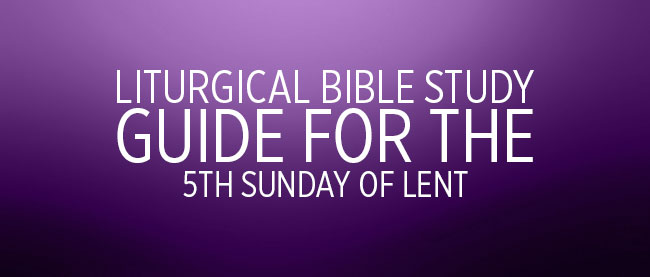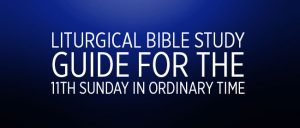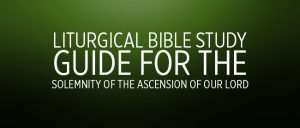1st Reading – Jeremiah 31:31-34
For nearly 75 years after the death of Isaiah no great prophet arose in Judah. It seemed as though the work of the religious leaders of the eighth century B.C. had been in vain. During the long and wicked reign of King Manasseh (693-639 B.C.), son and successor of King Hezekiah, idolatrous worship was established more firmly than ever, and the morals of the people sank to their lowest ebb. The prophets of Yahweh who dared to raise their voices in protest and warning were either silenced or brutally murdered. It was only after a change for the better had been inaugurated under the successors of Manasseh, that the “men of God” again came to the front, and a second golden age of Hebrew prophecy began. It is the age of Jeremiah and Zephaniah, Nahum and Habakkuk, Ezekiel and Daniel. The greatest of these, and at the same time the most Christlike of all the prophets, was Jeremiah.
Jeremiah came from a priestly family whose estates lay in Anathth, a town in the tribe of Benjamin, about two miles northeast of Jerusalem. He received his call as a young man in 626 B.C. (the thirteenth year of the reign of king Josiah). He warned and admonished kings, priests, and people that they were bringing disaster on the nation because they would not live according to the covenant that they had with Yahweh. The very institutions of Judah, the Temple and sacrifices, had become corrupt because they were now being used as an excuse for breaking the covenant: for not treating each other fairly; for exploiting the stranger, the orphan and the widow; for shedding innocent blood; for following alien gods. Therefore, Yahweh would destroy the Temple as He destroyed Shiloh;
He does not want their holocausts but adherence to the way of life He had marked out for them. Such preaching earned for Jeremiah the hatred of the people, priests and kings, who persecuted him. Like Christ, he preached against the established order, stood up for justice for the poor, the widow and the orphan, and was persecuted by those to whom he came to preach. In the end he was carried off to Egypt (about 680 B.C.), where according to Hebrew legend, he was stoned to death.
Our reading for today has been called “Jeremiah’s Spiritual Testament.” His entire message is condensed in these few words. This reading is also the longest Old Testament quotation in the New Testament; it comprises Hebrews 8:8-12.
2nd Reading – Hebrews 5:7-9
The identity of the author of Hebrews is unknown. With the exception of 1 John, it is the only New Testament epistle that begins without a greeting which mentions the writer’s name. Its ascription to Saint Paul goes back at least to the end of the second century in the Church of Alexandria. According to Eusebius (a 4th century historian), it was accepted as Saint Paul’s work by Saint Clement. Saint Clement believed that Saint Paul had written it in Hebrew for Hebrews and that Saint Luke had translated it into Greek.
The epistle to the Hebrews demonstrates that the Old Covenant, specifically the worship of the Old Covenant, has been superseded by the sacrifice of Jesus the Christ. It has been postulated that this letter to the Hebrews was addressed to former Jewish priests who had converted to Christianity. Today’s reading comes from the section of the letter which contrasts Jesus to the High Priest.
Gospel – John 12:20-33
Saint John had a clear purpose in mind when he wrote his gospel: “That you may believe that Jesus is the Christ, the Son of God, and that believing you may have life in His name” (John 20:31). He seeks to strengthen the faith of those early Christians in the young churches (congregations) of Asia Minor, who are threatened by the latent danger of going astray and even falling into doctrinal error about who Jesus Christ is and what is the true story of His life. Saint John goes straight to the point: Jesus is the Messiah, the Son of God made man.
Our reading today occurs during that first Holy Week – Jesus has come to Jerusalem for His passion, death and resurrection. The verses immediately preceding this reading describe Jesus’ triumphal entry into Jerusalem; He has ridden into town like a king with the waving of palm branches and cries of joy.





